Knee Pain
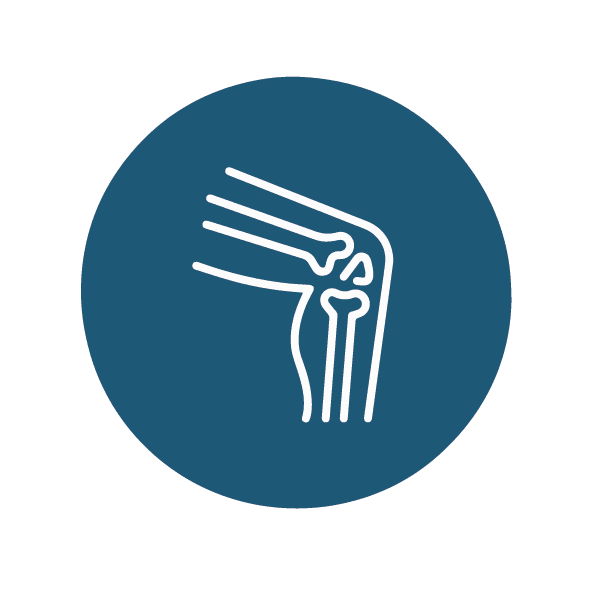
Our osteopaths, physiotherapists and chiropractors treat knee pain will conduct advanced assessments and diagonostics in order to identify the cause of your knee pain and recommend the best course of treatment for you.
Not only do we have access to specialist technology, including shockwave therapies, if necessary, we can also help your recovery in our spacious state-of-the-art rehabilitation suite.
Here are some of the most common knee conditions that we treat.
Knee Pain – Arthritis
Knee pain is a common ailment and one of the primary culprits is arthritis, often osteoarthritis, where the cartilage within the knee joint has deteriorated. This degeneration can affect not only the joint itself but also the surrounding muscles, ligaments, and tendons.
Osteoarthritis can be triggered by excessive stress on the knee, such as a traumatic incident or be caused by repetitive overuse (common in certain sports), or excess weight.
Indicators of arthritis in your knee/s include:
- Swelling
- Pain
- Reduced movement
- Morning stiffness
- Locking or clicking when straightened and flexed
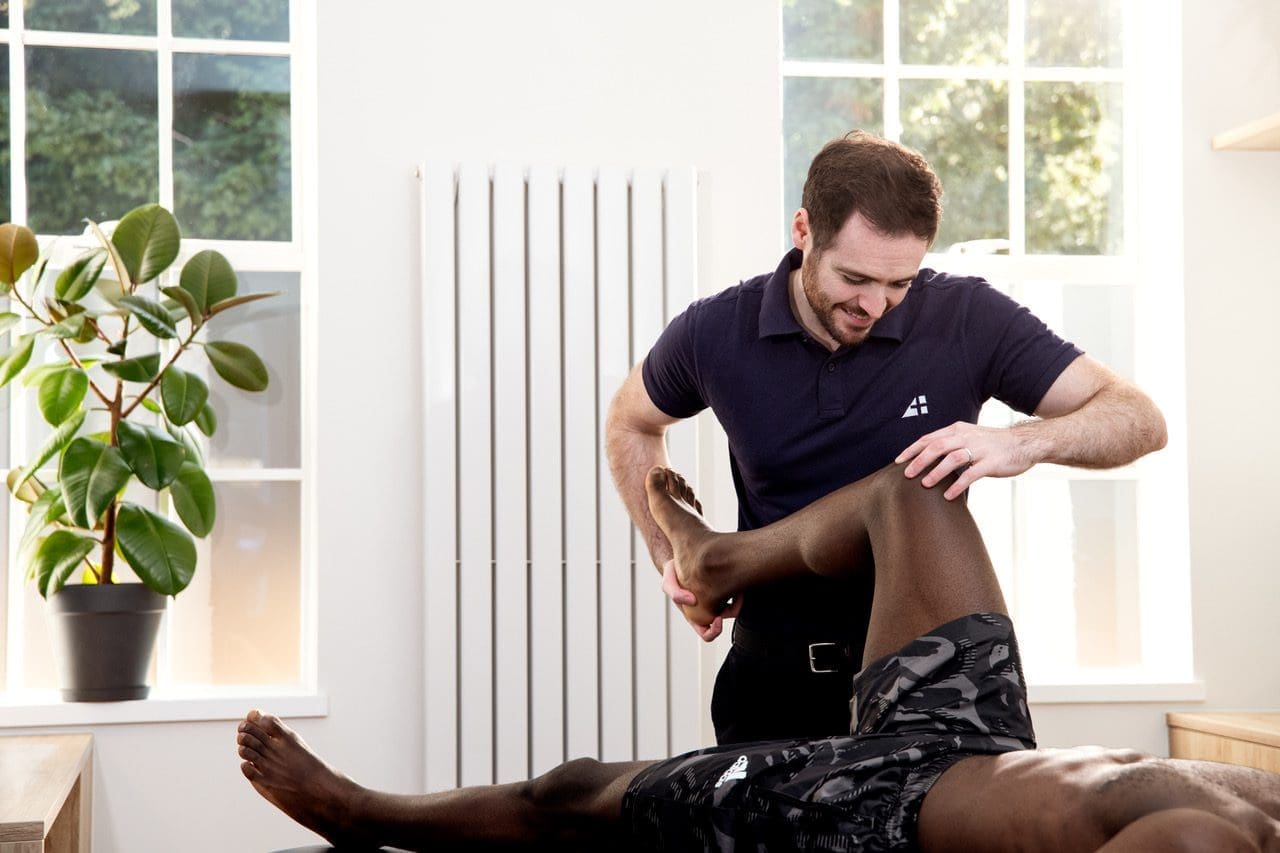
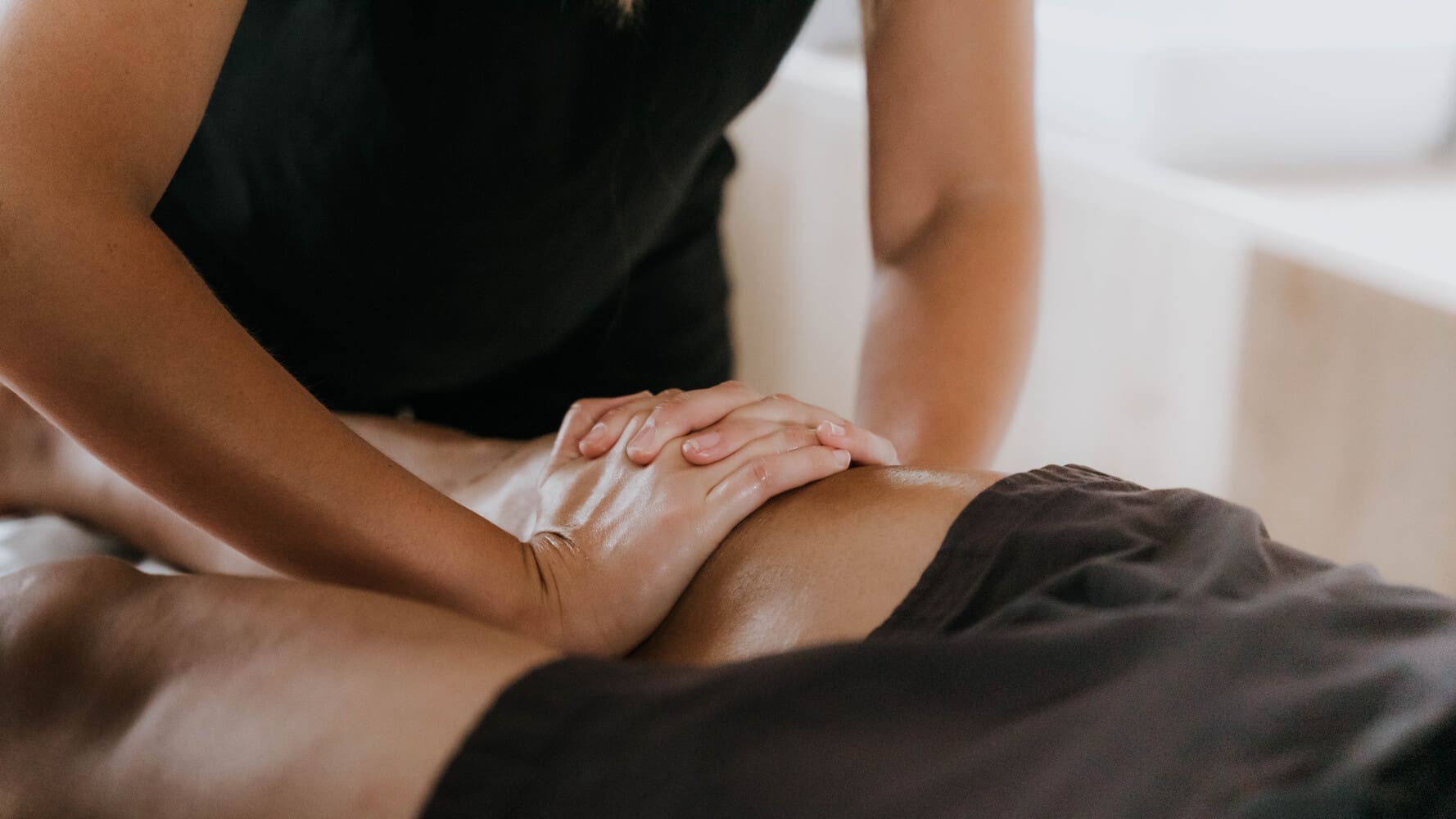
Understanding Knee Cartilage Injuries
The knee cartilage, known as the meniscus, is a tough, resilient tissue that acts as a shock absorber between the tibia (shin bone) and femur (thigh bone).
Knee cartilage is susceptible to injury when a rotating force is applied while the knee is weight-bearing – a common occurrence for footballers, rugby players, and similar activities.
Symptoms of knee cartilage injuries often include:
- Pain when bending the knee – such as when squatting or kneeling
- Discomfort on/around the knee
- Swelling
- A feeling of the knee “locking” or giving way suddenly when putting weight on it
Pain Around the Kneecap
Patellofemoral pain syndrome is one of the most common causes of kneecap pain. More often than not, it is an overuse injury – so much so that it is often called ‘runners’ knee’, however, it is also common in jumping sports such as netball.
Symptoms of patellofemoral pain syndrome include:
- Dull pain around the kneecap
- Worsening pain when walking up or downstairs, and sometimes when getting up from sitting for long periods
- Pain whilst running or jumping as well as squatting and lunging exercises
The condition tends to affect women more than men, and extensive research has identified several risk factors including reduced thigh (quadriceps) and buttock (gluteal) muscle strength. Your running biomechanics, as well as things like your footwear and the amount of training that you are doing, also play a role.
We start with these individual factors as our first step to addressing the underlying cause/s. Once the cause has been identified, we typically recommend several courses of treatment including manual therapy, rehabilitation exercises, and addressing any biomechanical risk factors you might have (such as running gait retraining).
Pain located underneath the kneecap is often caused by patella tendinopathy (previously called ‘tendinitis’), also known as ‘jumpers knee’ because it is commonly associated with sports or activities involving jumping or running. We usually treat it with a combination of rehabilitation exercises and shockwave therapy. It is a condition that affects adults, so if you have sporty children who are affected, it is usually caused by a growth-related condition such as Osgood-Schlatter disease.
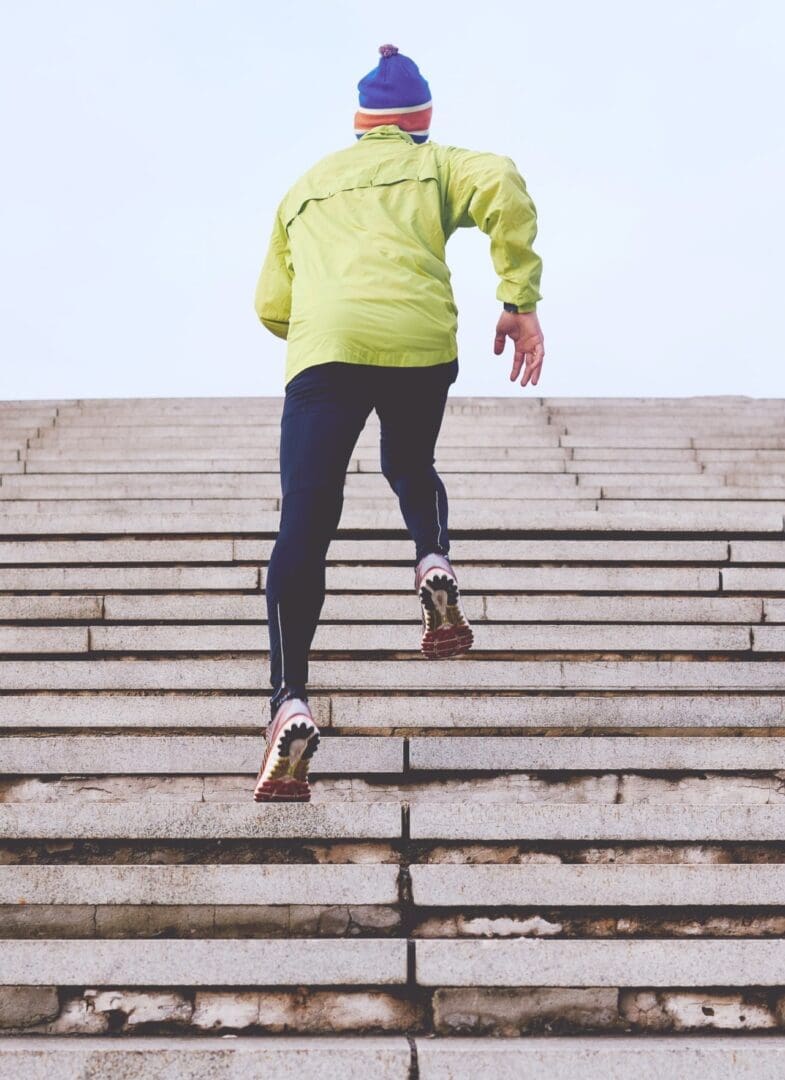
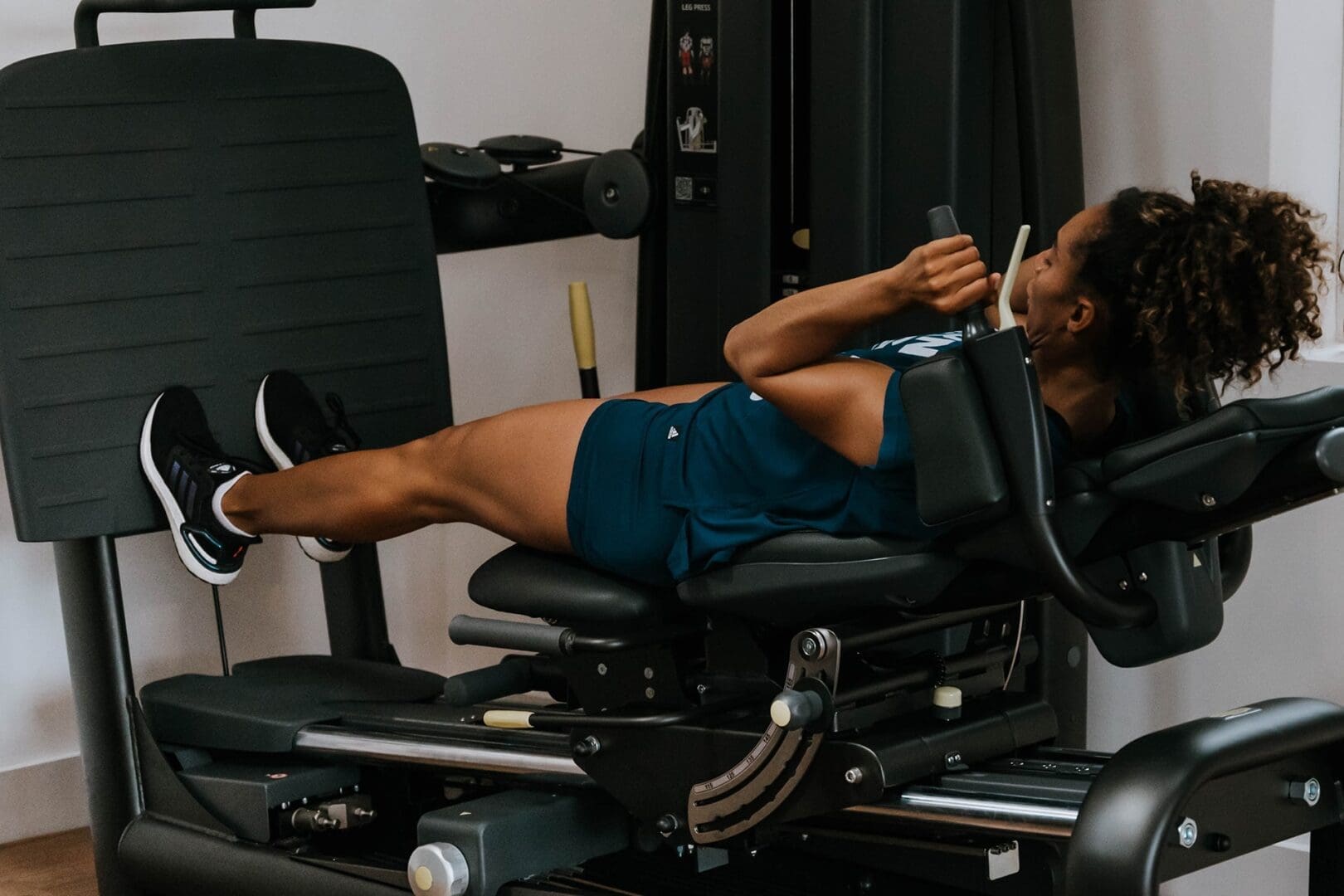
Treatment Options for Knee Pain
Our osteopaths, physiotherapists, and chiropractors can diagnose the cause of your knee pain and provide you with a range of advanced assessment and treatment options, including:
- Biomechanical analysis – including walking/running treadmill and force plate technology assessments, as well as functional movement screening
- Clinical assessment and orthopaedic testing
- Strength profiling with the use of specialist medical equipment (such as dynamometers)
- Expert rehabilitation prescriptions, which we personalise for every patient to enhance your recovery and ensure that we rectify any imbalances or strength deficits at the same time
- Hands-on therapy, such as tissue massage and joint articulation, to help ease your pain and discomfort
If you need further rehabilitation support, we can provide this in our spacious state-of-the-art rehabilitation suite.
Icing and anti-inflammatory medication may also be suggested, while in severe cases, your clinician may refer you for imaging (such as a knee MRI) or recommend that you see our in-house consultant doctor.
What our patients say about us
Being a Professional Team GB freestyle skier I was experiencing issues with my knees, I dropped into Acer house for a physiotherapy session with Phil Jeffs who was excellent… I feel a remarkable difference. Highly recommend.
Sam G:
Peter is amazing at what he does, very professional and caring. Acer House Practice is a very smart, beautiful practice with very modern facilities.
I highly recommend both Peter and Acer House Practice.
Emma D:
Our Clinic
Located in the picturesque village of Farningham in Kent, Acer House Practice is easily accessed by road and public transport with free parking on site or within the village.
Featured by:





